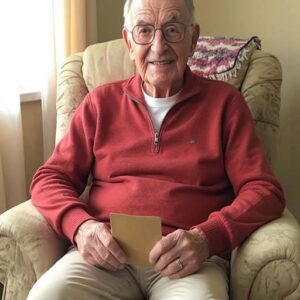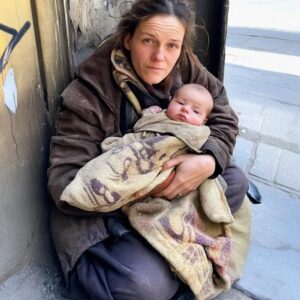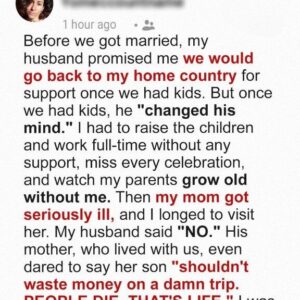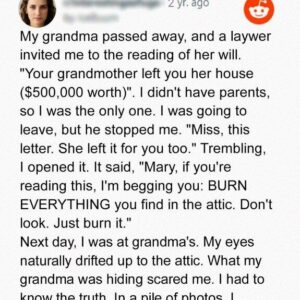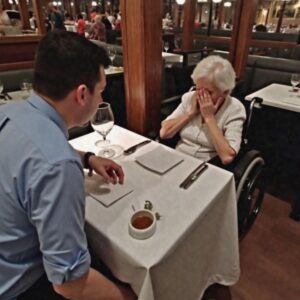The night my world collapsed, the house smelled faintly of lavender detergent and burnt toast. My mother had left bread in the toaster too long, and its bitterness hung in the air as she spoke the words that cut me off from my family forever. “If you’re going to keep that baby, you can’t stay here. I won’t have it.”
I was seventeen, four months pregnant, barely starting to show. My hand instinctively rested on the small swell of my belly as though I could shield the life growing inside me from her anger. My father stood nearby, arms crossed, silent but devastating. His eyes wouldn’t meet mine. I had never felt smaller, more ashamed, or more unwanted.
I packed quickly that night. A duffel bag with some clothes, a toothbrush, my schoolbooks, and the sonogram picture I kept tucked into a notebook. That photograph—grainy, black-and-white—was the only proof that I wasn’t just throwing my life away, that there was someone worth fighting for. My parents didn’t stop me. My mother turned her back, and my father stepped outside to light a cigarette. When the door clicked shut behind me, it felt like it had closed on my childhood forever.Packing services
I walked the streets for hours, the cool night air biting at my skin, streetlamps throwing long shadows across the pavement. Every step carried the weight of fear. I had nowhere to go. My best friend’s parents were deeply religious; they would never take me in. The boy who had promised he loved me disappeared the moment I told him I was pregnant. “I’m not ready to be a dad,” he had said, as if I had the luxury of being ready.
By midnight, I ended up on a bench in the park, clutching my bag, stomach twisted with fear and hunger. I had never felt more alone.
And then, the strangest figure appeared down the path. She looked like she’d stepped out of a storybook—an old woman in a long purple coat, a wide-brimmed hat with tufts of silver curls peeking out, and mismatched gloves, one red and one green. She pushed a little cart decorated with stickers and trinkets that jingled as she walked. Instead of avoiding me like most strangers would, she came straight toward me.
“Well now,” she said cheerfully, her voice sharp but warm, “you look like a lost bird that’s flown into the wrong tree.”
I stared at her, unsure what to say. “I… I don’t have anywhere to go.”
She sat beside me without hesitation. “Don’t we all feel that way sometimes? I’m Dolores, but everyone calls me Dolly. What’s your name?”
“Marissa,” I whispered.
She gave a small nod, her blue eyes flicking from my face to my belly. “Ah. So that’s the story.”
“My parents kicked me out,” I admitted, my voice cracking.
She sniffed with disapproval. “Then they weren’t doing the job parents are meant to do. Their loss. Come on, up you get. You’re coming home with me.”
I blinked. “I don’t even know you.”
Her grin widened. “And yet I’m the only one offering you a roof tonight. Don’t worry, child, I may be eccentric, but I’m not dangerous. Ask anyone in town. I’ve been feeding stray cats and stray people for decades. You happen to be both.”
I actually laughed—something I hadn’t done in weeks. Against all logic, I followed her. Something about Dolly radiated safety.
Her house was as unusual as she was. A big turquoise Victorian with sunflower-yellow shutters, wind chimes singing on the porch, and ceramic gnomes lining the walkway. Inside, it smelled of cinnamon and felt alive with clutter—books stacked high, jars of buttons, blankets draped in every color. It was chaotic but welcoming.
“Tea?” she asked, and minutes later we sat at her kitchen table with steaming mugs and shortbread cookies. She studied me closely, then said, “You’ve been dealt a cruel hand. But life has a way of offering second chances in the oddest packages.”
“I can’t raise a baby alone,” I whispered. “I can’t even finish school.”
“Of course you can,” she said briskly. “I taught school for thirty years. You’ll finish. And as for the baby—well, no one should do it alone. Lucky for you, I’ve got too much house and too much time. We’ll make a plan.”
I stared at her. “Why are you helping me?”
She shrugged. “Because once, someone helped me when I thought my life was over. Kindness is a debt you spend your life repaying. Besides, I like babies. And I like stubborn girls who refuse to give up.”
That was the night my life began again.
In the months that followed, Dolly gave me more than shelter. She gave me stability. She painted a room for me in soft yellow “because babies like sunshine,” drove me to doctor’s appointments in her flower-painted Volkswagen Beetle, and left little notes around the house reminding me to rest. Her eccentricities—mismatched earrings, talking to plants, turning shopping carts into garden planters—made me laugh when I wanted to cry. But more than anything, she believed in me. She never pitied me. She pushed me to finish school, to prepare for motherhood, to see myself as strong.Packing services
When my daughter Leah was born, Dolly was there holding my hand, cracking jokes through the contractions and crying harder than I did when the baby arrived. She became a grandmother in every sense, rocking Leah at night, singing silly songs, and cheering at every milestone.
With Dolly’s support, I finished high school through online classes, graduated, and even went on to community college. Leah grew up in a home full of laughter, love, and mismatched trinkets. She learned to count with Dolly’s button jars and to believe that life was too short for symmetry.
Years later, Dolly sat me down and told me she had left her house to me and Leah. “I didn’t save you,” she said softly. “You saved yourself. I just gave you a place to land until your wings grew back.”Children’s booksPacking services
She lived long enough to see Leah turn ten. When she passed, peacefully in her sleep, it felt like the light had dimmed in our house. But her spirit lingered in every corner, every teacup, every memory.
Now I tell Leah stories about the woman who saved us both. About the night a strange, eccentric woman in a purple coat found me on a park bench and decided I was worth saving.
And I remind her of Dolly’s words: “Kindness is a debt you spend your life repaying.”
That’s what I do now—open my home, my classroom, and my heart to others who feel lost. Because I know what it’s like to be abandoned, and I know how life-changing it is when someone chooses to see your worth.
